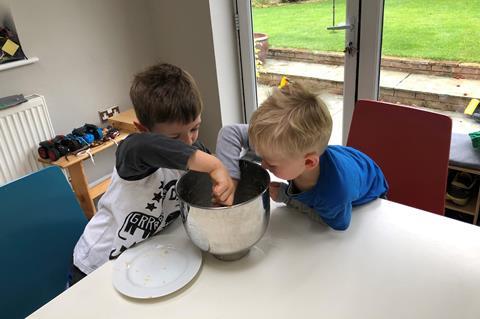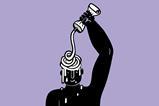Anyone can bake, but can everyone do chemistry?
Never trust a chemist who can’t cook – or bake. It’s a bit of a cliché that chemists make good cooks – and I haven’t got where I am in science journalism without embracing clichés whenever I see them. Being able to accurately measure liquids and powders, paying careful attention to arcane lists of instructions – both are useful skills for successful experiments in the lab and the kitchen.

But does it go deeper than that? My first thought is to say no, of course not: anyone can bake. But then thinking deeper, maybe there is something to it. You only have to watch a few episodes of cooking TV programmes like The Great British Bake Off or Masterchef before you start to hear pretty technical scientific concepts. Emulsions, acid–base reactions, protein hydration, freezing point control, the Maillard reaction and so on. It’s pretty clear that bakers need to be in touch with their inner chemist.
Nina Notman’s feature takes a look at the chemistry going on in one of Britain’s favourite cakes, the Victoria sponge. It’s clear from the experts quoted in the feature that an understanding of what’s going on in the mixing bowl and baking tin can make you a better baker. With chemistry so integral to the culinary arts, and millions of people ‘doing chemistry’ every time they venture into the kitchen, you’d imagine there’d be wide awareness and acceptance of the importance of the subject in our daily lives.
You, our readers, already know that of course. But there are lots of people for whom chemistry doesn’t feel part of their everyday lives, for whom it is (or was) something to be avoided at all costs at school. Many of these students are from disadvantaged backgrounds, and have less ‘science capital’ than their more fortunate peers. In other words, they don’t go to science museums in the holidays, they’re less likely to see science books around the home, they don’t see science or nature documentaries on TV. Compare that to your own home or your own childhood.
How can chemistry as a community help schools increase the science capital of those students? That’s the focus of a five-year, one-million-pound Royal Society of Chemistry project that is covered in a recent feature by Rachel Brazil.
It’s well worth your time. Interventions and outreach can have an effect. But it turns out that in the main, teachers already know what their students need, they just sadly don’t have the time or the resources to help out. So if you’re running outreach programmes – from a science-focused company or a university – keep going! But remember to consider what those you’re trying to reach really need. It may not be bangs and flashes, it may simply be a better appreciation of where a chemistry A-level or degree can take them. And most crucially, it should be the realisation that chemistry is for everyone.

















No comments yet